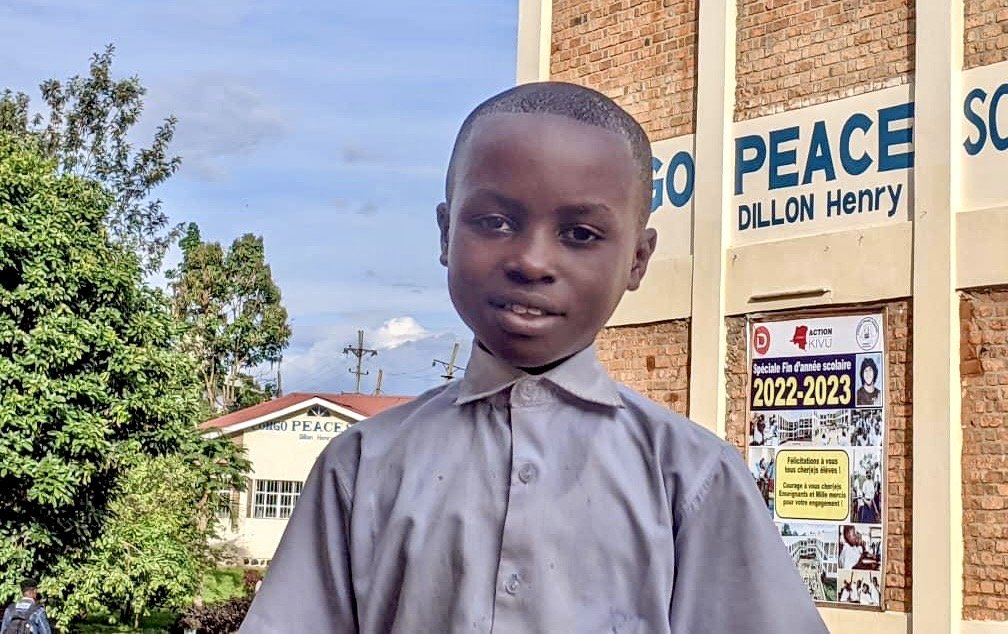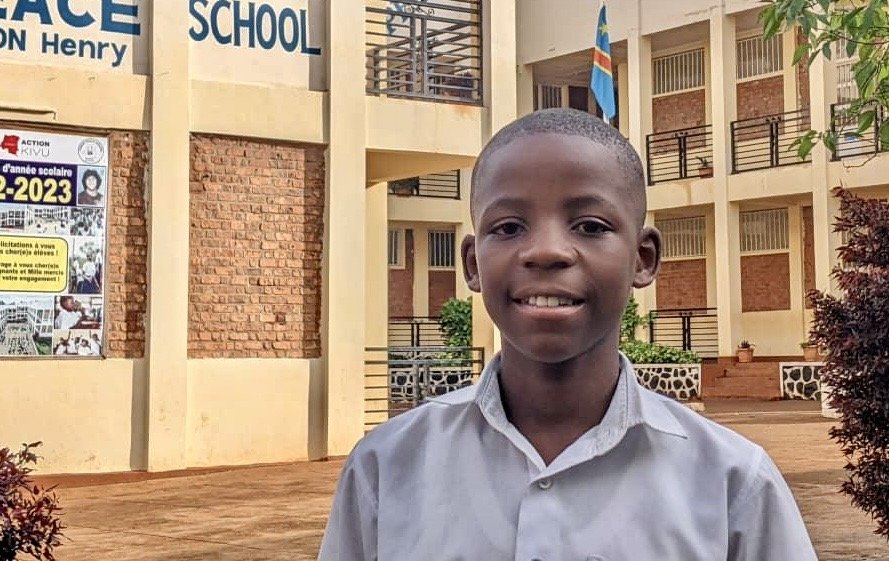This past month at the Congo Peace School, the students and staff focused on Martin Luther King Jr.'s fourth principle of nonviolence. As our Founding Director Amani Matabaro shared the students’ responses, he noted that Principle Four of Martin Luther King Jr.’s philosophy of nonviolence is more difficult than the others for the students to discuss any real-life applications they’ve made with it in their lives. It’s difficult for adults, Amani noted. Number four may spark the most discussion of the six principles in King’s ideology.
Principle Four: Nonviolence Holds That Unearned, Voluntary Suffering for a Just Cause Can Educate and Transform People and Societies.
Nonviolence is a willingness to accept suffering without retaliation; to accept blows without striking back.
Nonviolence is a willingness to accept violence if necessary but never inflict it.
Nonviolence holds that unearned suffering for a cause is redemptive and has tremendous educational and transforming possibilities.
Thinking of King’s time in history and this principle invokes imagery of Black Americans sitting peacefully at a counter while white people torment and torture them, casting a clear light on the inhumanity and sickness of violence and white supremacy in the context of systemic racism in the U.S.
In Congo, in the midst of armed conflict and sexual violence as a weapon of war, we asked several students at the Congo Peace School what Principle Four means to them.
Bahati Masumbuko lives with her grandmother (many of the students have been orphaned due to the conflict, dangerous mining conditions, or the AIDS epidemic). She shared that, “no one can achieve a larger goal without sacrifice. There is no need to respond to violence with violence, if someone insults you, no need to respond with another insult but keep moving to achieve your goal.” Bahati hopes to become a lawyer to fight different types of injustice in the DRC (Democratic Republic of Congo).
Charle Murhula shared that “nonviolence is never easy, you need to be courageous and take risks and avoid retaliation any way you can.” When further asked, what happens when you DON’T retaliate in response to violence, Charle said, “When you do not retaliate, you open a dialogue which can lead to mutual forgiveness.”
Charle hopes to become a nurse to take care of the many people, especially children who are sick every day but have nobody to take good care of them. Charle hopes one day Congo becomes a country where children have access to quality medical care.
Asifiwe Bahati said, “If the other party in front of you does not understand what you want to achieve, explain more to them, and if still they do not understand and react violently, there is no need to fight back. Keep moving and nonviolence will allow you to win them over to your cause and they will join you. But if you fight back, you will lose direction and you will not achieve the goal.”
Asifiwe lives with her uncle, and hopes to become a teacher one day to contribute to giving education to children. She hopes Congo can become a country where teachers get good payment from the government.
Ampire Anicet shared that “at our school and at home, when someone behaves violently against you, there is no need to retaliate because it can become a distraction, a deviation and you will not reach the goal.'' Ampire lives with his parents. His mom is a teacher in a different elementary school, purportedly funded by the government, but she is rarely paid her salary.
Ampire wants to become a lawyer to stand up against injustice and human right violations. He dreams one day Congo will become a country where human rights are respected.
Mugisho Mwembo shared that he learned “retaliation exacerbates hatred among people and no one wins, no one achieves their goal.” Mugisho lives with his aunt, he wants to become a computer engineer so he can teach computer skills to as many Congolese children as possible. Mugisho hopes one day Congolese people can profit from the wealth of their country.
In other news for this year, we’re thrilled to announce that our Founding Director, Amani Matabaro, has been granted a fellowship at Harvard! He and his wife Amini and their youngest son have moved to Cambridge for a short stint in the U.S. and are settling in for a cold winter life with the help of many of you, our Action Kivu family!
Over the last six years of operation, Amani has helped create a community of empowered leaders at the Congo Peace School who continue in his absence to teach and inhabit the principles of peace and nonviolence as they provide a quality education rooted in healing-informed practices. Amani is also still involved weekly with the school through WhatsApp and email, so our updates will continue as normal.
More about the fellowship from Amani:
“It was such an honor when I was informed about being awarded the fellowship by the Harvard Kennedy School of Government through the CARR Center for Human Rights Policy. I’ve been assigned a faculty supervisor with whom I need to discuss the structure of my research topic during my tenure here at the Harvard Kennedy School. While I am here, I will have opportunities to engage with other human rights centers at the university and particularly the Harvard Humanitarian Initiative (HHI).
"The center embraces a dual mission: to educate students and the next generation of leaders from around the world in human rights policies and practices and to convene and provide policy-relevant knowledge to international organizations, governments, policymakers, and businesses.
“While I am here, I am expected to produce a paper, report or a comparable written product for publication by the center. I am also required to participate in the center's convenings and engage with other fellows and faculty at the center. I have proposed that I focus on: Safeguarding of Children's Right to Education in Conflict Settings, Lessons from the DRC, but I still need to have discussions with my faculty supervisor to come up with a final structure of this topic.There is no peace if human rights are not respected. The knowledge and experience I will get from here will be used to improve the quality of the work we have been doing over the years at the Congo Peace School, our community initiatives, and in the greater region of eastern Congo.”
Thank you for you commitment to peace and equality through your support of the communities of Congo! Please join us in celebrating the practice and embodiment of peace with a year-end gift to invest in the children and communities of Congo!
Click here to donate online or to find our address for your gift via check.





